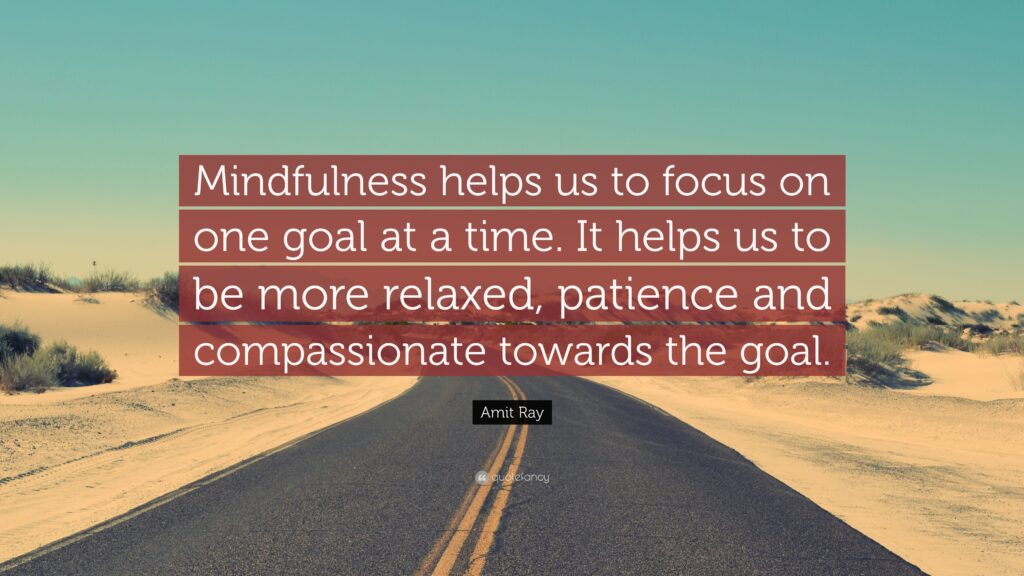Even if you didn’t make any New Year’s resolutions (I don’t), you probably still want to make this year better. Maybe you want to start being healthier. Being more productive. Being more connected.
Maybe you want to start a business. (Here’s the reason Steve Jobs said everyone should.)
Maybe you want to do, or make, not just one thing about your life better, but a lot of things better.
Problem is, that means you’ll probably fail.
The Science of Multiple Goals
According to a study published in Journal of Consumer Research, pursuing more than one goal at a time makes it much less likely you’ll achieve any of those goals. As the researchers write:
The benefits of implemental planning for attaining a single goal do not typically extend to multiple goals.
Instead, implemental planning draws attention to the difficulty of executing multiple goals, which undermines commitment to those goals relative to other desirable activities and thereby undermines goal success.
Partly that’s because of the nature of “implemental” planning: Think: “In [this] situation, I will do [that].” Like planning to work on your side hustle after you get home from your full-time job. Or planning to eat healthy when you’re hungry. Or planning to work out first thing in the morning.
The problem is, each “this moment” requires a little willpower to ensure “that” actually happens. (You’ll eventually get hungry. What you do when you get hungry is where willpower may be required.)
In a perfect world, deciding to do the “that” you intend will result in what I call the improvement ripple effect: Focusing on improving one thing, no matter how small, tends to lead to making improvements in other areas.
Virtuous and Vicious Cycles
Research backs that up. Take leadership: Google found that when managers talked with new hires on their first day about their roles and responsibilities, not only did those new employees reach expected productivity levels a month faster than other employees, but the managers became better leaders as well.
Doing one thing naturally led to doing other things.
The same holds true for exercise and diet. Many people, once they start to work out regularly, naturally begin to eat healthier. A study published in Medicine & Science in Sports & Exercise found that people who exercised for 12 weeks – long enough to make exercise a part of their lifestyle – still really liked fatty or high-calorie foods, but no longer wanted to eat them as much.
There’s a downside to the ripple effect, though. When you slip in one area, you tend to slip in multiple areas. If I don’t work out today, I’ll be more tempted to eat things less good for me; I’ve already blown my routine, so why not? If I don’t work on a book, I’m less likely to work on a keynote; the day has already fallen apart, so what the heck. Tomorrow is another day.
Pursuing multiple goals means making multiple good, potentially willpower-draining, decisions throughout the day. That’s hard enough.
Then layer in the fact that making one wrong “when this happens, I’ll do that” decision means you’re more likely to make more counterproductive decisions, and pretty soon you aren’t progressing on any of your goals.
One New Habit at a Time
Good habits are extremely hard to develop and really easy to break.
Say you’re trying to eat healthier. Even if you’ve stayed the course for a few weeks – and have the results to prove it – one day you’ll be unable to resist whatever is your particular diet Achilles’ heel. (Mine is ice cream. I can hammer a pint of ice cream, which is why we don’t keep it in the house.)
Since you blew your diet, you figure the day is shot. So you binge at supper, too. And then you wake up the next day feeling defeated, feeling like you’ve blown it – and boom: Your new healthy habits are gone.
Perfection is impossible. Sometimes you’ll slip. Sometimes you won’t do what you planned to do. That’s OK – accept it, own it, and then get back on the new habit horse. That’s a lot easier to do if you’re trying to achieve only one goal, because then you’ll have only one horse to climb back on.
If your plan is to cold call 10 prospects a day, but one day you manage only five, fine. Just be sure you make all 10 calls tomorrow. What matters is the long term. While you might occasionally fail, see a setback as just a setback, not a deal breaker, because no one is perfect.
Take that approach, and in time your new habit won’t be something you have to think about. You’ll just do it.
You’ll just be it.
And then you can take on another goal with even more confidence, because you’ll know you can achieve what you set out to achieve. That you can become what you wish to become.
One goal at a time.
This article was written by Jeff Haden who is a keynote speaker, ghostwriter, LinkedIn Top Voice, contributing editor to Inc., and the author of The Motivation Myth: How High Achievers Really Set Themselves Up to Win.
